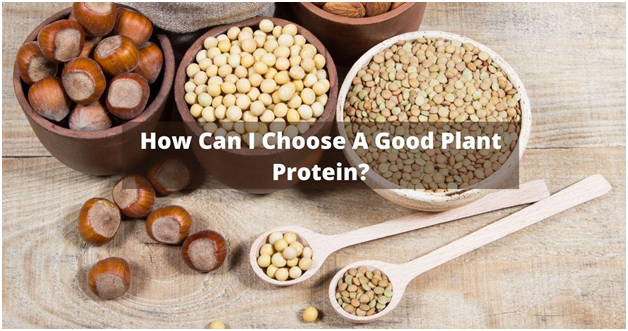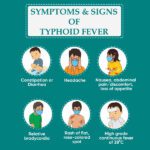When it comes to getting enough protein into your diet, protein powder is an excellent choice. But what if you’re not a fan of dairy? Choosing a plant protein powder should have the following features.
It might be difficult to get sufficient quantities of high-quality protein if you follow a vegetarian or vegan diet. It becomes more difficult when meat, fish, and other types of seafood are removed from the menu. On top of that, excluding eggs and dairy products means that you really need to be creative in order to get full proteins.
You are in luck since you can easily get protein powders derived from plants to assist you in meeting your daily protein requirements. And plant-based proteins aren’t only for vegetarians. They are an easy and delicious method to fulfil the requirements for protein in any diet.
The finest plant-based protein powders are those that are organic, have complete proteins, are sourced in a sustainable way, include quality ingredients, are nutrient rich, are free of genetically modified organisms, and do not contain grains.


What is Plant Protein?
To get the same benefits as animal protein powders, which are manufactured from milk based ingredients, plant-based protein powders are an excellent choice. There are many individuals who have dietary allergies, such as lactose intolerance, and some who may not want to give up the muscle building and body recovery advantages of these protein powders. You need protein in order to make bone, skin, muscle, and blood as well as hormones and enzymes in your body.
Protein powders come in a wide variety of flavours as well as a variety of sizes, making it tough to choose the best one for you. How exactly do you go about selecting the best protein powder to meet your requirements? When it comes to finding the greatest protein supplement to help you reach your health objectives, you have to ask yourself a lot of questions.
Is it a complete protein that I’m looking for?
Is this flavour good for regular consumption? How much protein per serving? Is a plant protein powder something I’d want to take? What are my long-term objectives for my health and well-being? Do I need a protein powder that is free of gluten, organic, or has no GMOs? For vegans, extra considerations must be taken into account when deciding whether or not this protein powder is vegan.
How to choose a Plant Protein
1. Is it a complete protein
If you are searching for a vegan protein powder, one of the most crucial things to ask yourself is whether it is a complete protein and how to pick a protein powder that delivers a complete source of protein.
A complete protein has all nine necessary amino acids, which the body is incapable of producing. Your body puts these organic compounds together to make the proteins it needs to do important things like build and repair muscle tissue.
Choose a protein powder like veganway, which is produced from pea protein and brown rice protein, to guarantee that you’re getting all nine essential amino acids. We suggest that vegans and those on a dairy-free diet use a plant based protein powder that contains all nine necessary amino acids since plant sources may not include all of them.
2. Protein per serving
Protein that you consume on a daily basis should equal 0.8 grams per kilogram of your body weight. IOM suggests that an average inactive woman should take 46 grams of protein per day, whereas an average sedentary male should consume 56 grams of protein per day.
3. What is the Source?
Hemp protein, pea protein, soy protein, and brown rice protein are among the most well liked choices available for getting one’s protein intake from plants. Brown rice protein and pea protein alternatives can be a better choice if your goal is to reduce your consumption of soy products. Consider if the plant-based protein source is certified organic and free of genetically modified organisms (GMOs).
4. Sugar & Calories Count
The vast majority of our food has added sugar, and vegan protein powders are not an exception. Sugar is often added to plant-based protein powders in order to boost their natural flavour.
While a modest amount of sugar isn’t harmful, it does increase caloric intake without providing any extra nutrients. You should restrict your intake of added sugars to no more than half of your daily calorie allotment.
5. Vegan Protein Flavour
Vanilla, cocoa, and unflavoured protein powders are the three most frequent flavours available for protein powders. If you’re looking for a vegan protein, don’t forget to consider your health and your taste preferences at the same time. Look for a protein that doesn’t have a lot of added sugar if you’re searching for a flavoured protein powder.
Protein powders with natural flavours are equally as flavourful as those with artificial flavours, but the artificial flavours may leave a taste in your mouth. Protein smoothies don’t have to be boring. Fresh fruit or peanuts are great additions to a simple protein powder.
6. Any side effects from this?
After you have decided which category of plant-based protein most appeals to you, the next step is to choose a specific brand. You should do some research on the company, including looking into the scientific studies that support their claims and the sources of their ingredients.
In order to have a clearer image of what you’ll be putting into your body, you may want to look into if the brand employs organic components or other components.
There are several ways to tell whether a firm is credible and trustworthy, such as if they deal with medical specialists and their partners have sufficient certification. The most essential thing is to choose a company you can put your faith in and that you believe is looking out for your best interests.
Final Thoughts
If you are using a quality plant based protein powder, including a plant based protein powder into your diet will provide you with the adequate amount of protein you need, assist you in warding off illness, and enhance your overall health.
Author Bio:
I am Meera Sharma, a post-graduate in Health and Nutrition, and an inquisitive person who loves writing. I’m working in a vegan way and my forte is digital marketing and everything that has to do with phones and screens. My belief is that one person can make a difference, and that’s why I’ve taken up writing, which is the best means to communicate these days. I have a decade of experience in writing and marketing, and I still find myself learning new things about it, which I want to share with my readers.


